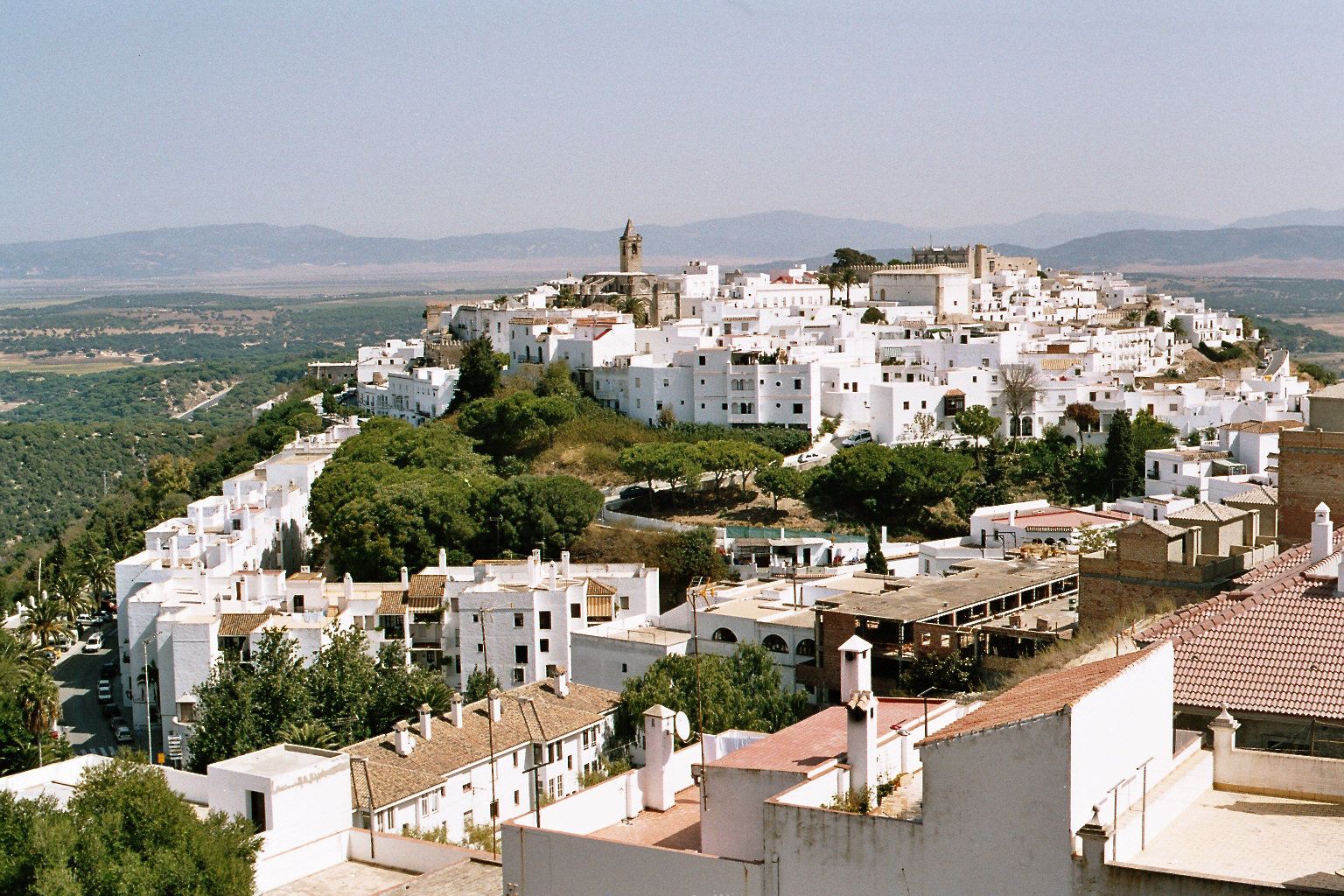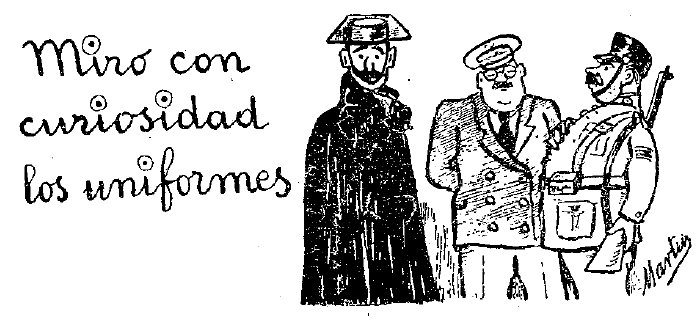
| Языки :: Испанский |
| Аудио |

 |
|
 |
|
|
Español |
Spanish |
| Lección Novena (9ͣ) | ||
| En la frontera española | At [in] the Spanish frontier. | |
| 1 |
Estoy en Irún, la primera estación española. |
(I) am in Irun, the first Spanish station. |
| 2 |
Se cambia de tren, porque los ferrocarriles españoles son de vía mas ancha que los franceses (1). |
One changes [of] train because [the] Spanish railways have [are of] wider [more w.] track(s) than the French. |
| 3 | Un mozo toma mis maletas y las lleva a la aduana (2). | A porter takes my suitcases and carries them to the Custom-Office. |
| 4 | ¿Tiene usted algo que declarar? - No, nada (3). |
Have you anything to [which] declare? - No, nothing. |
| 5 |
Abra usted esta maleta. - Bueno. |
Open this suitcase. Good. |
| 6 |
Miro con curiosidad los uniformes de los
aduaneros, carabineros y guardias (4). |
(I) look with curiosity (at) the uniforms of the Custom-officers, " carabineers " and " gendarmes ". |
| 7 | Después de la inspección lleva el mozo las maletas al tren español. | After [of] the inspection, the porter carries my suitcases to the Spanish train. |
| 8 | ¿Que clase, señor? - Segunda. - Aquí hay un sitio, señor (5). |
What class, sir? - Second. - There is a seat here, sir. |
| 9 | El mozo recibe una peseta de propina, y se va satisfecho. | The porter receives one peseta for a [of] tip, and goes away, satisfied. |
| EXERCISE : | ||
| 1 |
Hay sitio en la sala. - ¿Hay sitio en la sala? - No hay sitio. - ¿No hay sitio? |
There is room in the room. - Is there room in the room? - There is no room. - Is there no room? |
| 2 | ¿Tiene usted dinero que cambiar? - No, nada. |
Have you money to change? - No, nothing. |
| 3 | Esta francesa tiene una maleta que llevar. | This Frenchwoman has a suitcase to carry. |
| 4 | ¿Por qué no viene usted? - Porque no puedo ahora. |
Why do you not come? - Because (I) cannot now. |
| 5 |
Usted habla menos que yo, |
You speak less than I. |
| NOTES. | |
| 1 |
Por qué : why; |
| 2 |
In llevar, to carry, we make the acquaintance
of ll; |
| 3 |
Two useful words : algo, something, and nada,
nothing. Observe the use of que in : algo que Ilevar : something [which] to carry; nada que aprender, nothing to learn. |
| 4 |
In curiosidad, the final d may be sounded very slightly;
the important thing is to pronounce hard s. - The carabineros are armed custom-officers, and the aduaneros custom-clerks. |
| 5 |
T is always sounded t : si-t-io and not (sisho).
Mind hard s in clase, and (next sentence) in peseta. |
|
There are already in our lessons a good many new words; don't try to remember then definitely; we shall make better acquaintance with them later. |
